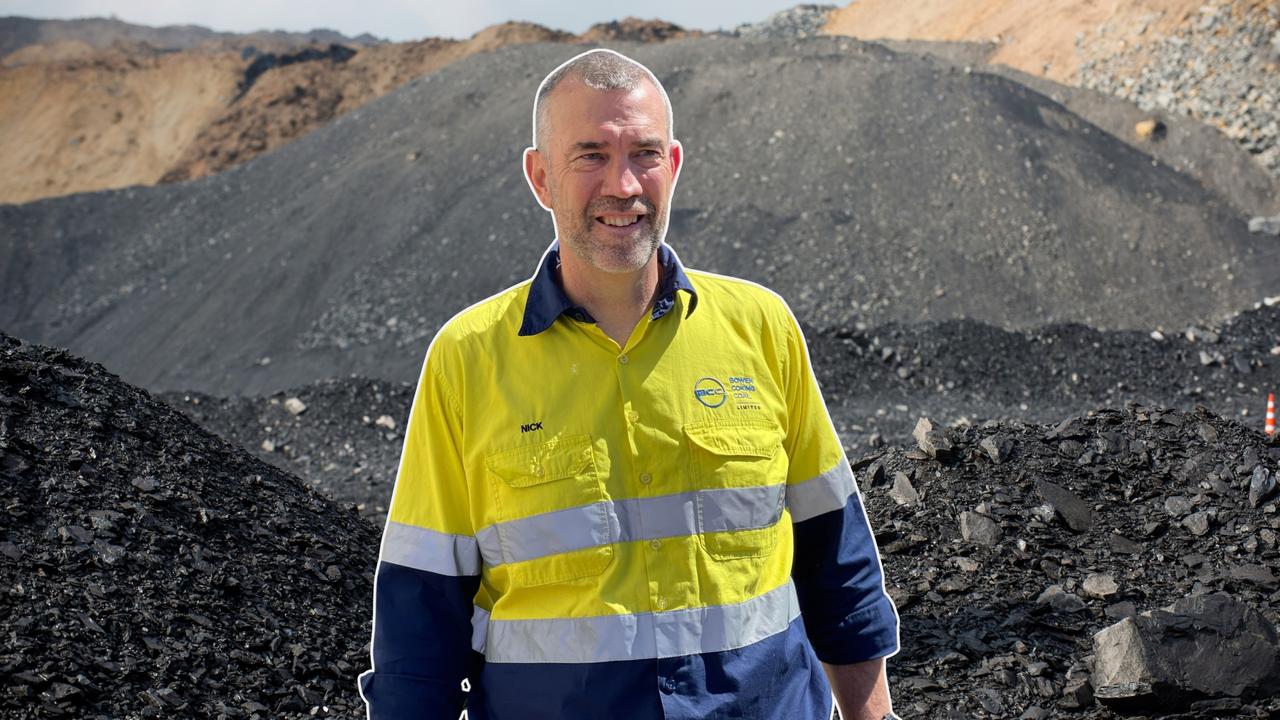Qanapi boss Trent Telford says quantum computing could blow apart current data encryption
Bad actors are probably warehousing encrypted data now in anticipation of the imminent advent of quantum computing, experts warn.

Business
Don't miss out on the headlines from Business. Followed categories will be added to My News.
Bad actors are probably warehousing encrypted data now in anticipation of the imminent advent of quantum computing, experts warn, with the enormous boost in computing power from chips such as Google’s recently released Willow promising the ability to break current encryption in minutes – if not seconds.
Cocoon Data and Qanapi founder Trent Telford said this meant that companies should be acting now to quantum-proof their data sets, with current encryption at risk of being easily crackable within the next few years.
Google recently unveiled Willow, publishing its research results in the journal Nature, after more than a decade of work.
Google says the chip can perform a benchmark computation in under five minutes. In contrast, the task would take the current fastest supercomputers more time than the universe has been in existence to complete.
US-based entrepreneur and co-host of the All In podcast David Friedberg said the implications for encryption could be huge, with quantum computers theoretically able to crack existing encryption quickly.
“It’s really hard to of highlight how different this is from traditional computing,’’ Mr Friedberg said on a recent podcast episode.
“Quantum computing creates entirely new opportunities for algorithms that can do really incredible things that really don’t even make sense on a traditional computer – they’re not possible to resolve on a traditional computer.’’
Mr Friedberg said there were calculations that quantum computers could carry out virtually instantly which would enable the cracking of high-level 256-bit encryption in seconds or minutes.
“It’s mind-blowing when you look at it,’’ Mr Friedberg said.
“It’s like this really non-intuitive but simple set of steps that when you put them together on a quantum computer it’s like this thing can instantly figure out all the factors and then you can break a code.
“In a couple of years if Google continues on this track and now they build a large-scale qubit computer, they theoretically would be in a position to start to run some of these quantum algorithms.
“So we’re now kind of spitting distance or a couple of years – it’s not really clear – is it three years, five years, seven years, but a couple years away from having computers that theoretically could crack all encryption standards.’’
Mr Friedberg said there was a set of encryption standards called “post-quantum encryption”.
“All of computing and all software is going to need to move to post-quantum encryption in the next couple of years,’’ he said.
Mr Telford said an issue for businesses to consider was how to prepare now to protect data which, within five to seven years, could be vulnerable to a quantum attack.
“How do you encrypt the data that’s not encrypted or encrypt and protect data that was encrypted using old algorithms which can have the doors blown off within minutes. That’s the big issue,’’ Mr Telford said.
Mr Telford said that last year he met US national cyber director Harry Coker Jr, who said the product Qanapi had developed provided “crypto agility’’.
“That means we’re the only ones who’ve built an API (application programming interface) to allow software developers to just get a line of code and it allows them to take any computer system – whether that’s a current cloud system, a 20-year-old IBM database or a new connected-warfare autonomous drone and just be able to roll out cryptography to protect all these systems and databases at scale.
“It’s a really big issue – it’s national security, it’s banking, it’s healthcare, it’s everything we hold dear.’’.
Mr Telford said it was well known in national security circles that foreign actors were already using a strategy called “store now, decrypt later” whereby data was being collected now for cracking with future quantum computers.
Mr Telford said Qanapi had struck a partnership with Google Public Sector and was now “a key partner of theirs’’.
“Through them has come not only access to business through Google, but also through their strong partner network in federal and defence and intelligence communities.
“We’re deploying the API service into a part of Google cloud that will put us on a path to something called FedRamp High – that’s a US government certification to handle classified data.
“We’ll be literally the only data protection service that’s an API service certified for use across the whole US government for classified material.’’
Mr Telford said the company was continuing to consider a Series A capital raise, but had delayed it, given its improving revenue profile.
“We’ve gone out and we’ve had discussions with many of the major top tier VCs. We’ve had really strong interest from all of them, so we’ve decided to sit back and have a look,’’ Mr Telford said.
“Because we’ve got so much business about to drop in the US because of the work we’ve done with Google, our revenue over the next two quarters will be very strong.
“So we’re thinking do we take a round now or we wait three to six months – we’re well funded by our Australian shareholders – and get a much more substantial uptick in our valuation, so we're currently assessing it.’’
Qanapi now employs about 20 people and would soon looking to grow that by 50 per cent.
More Coverage
Originally published as Qanapi boss Trent Telford says quantum computing could blow apart current data encryption









